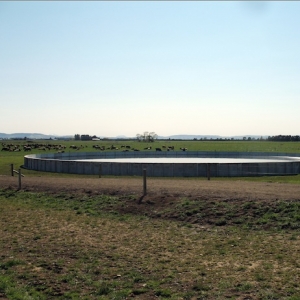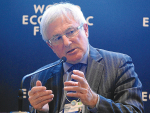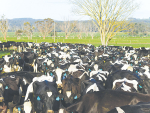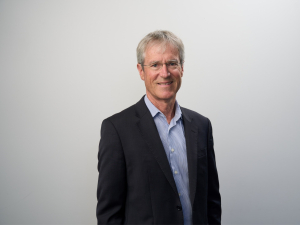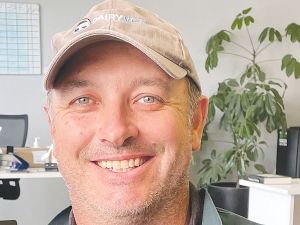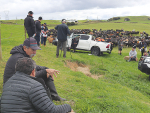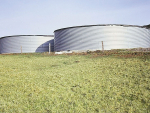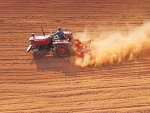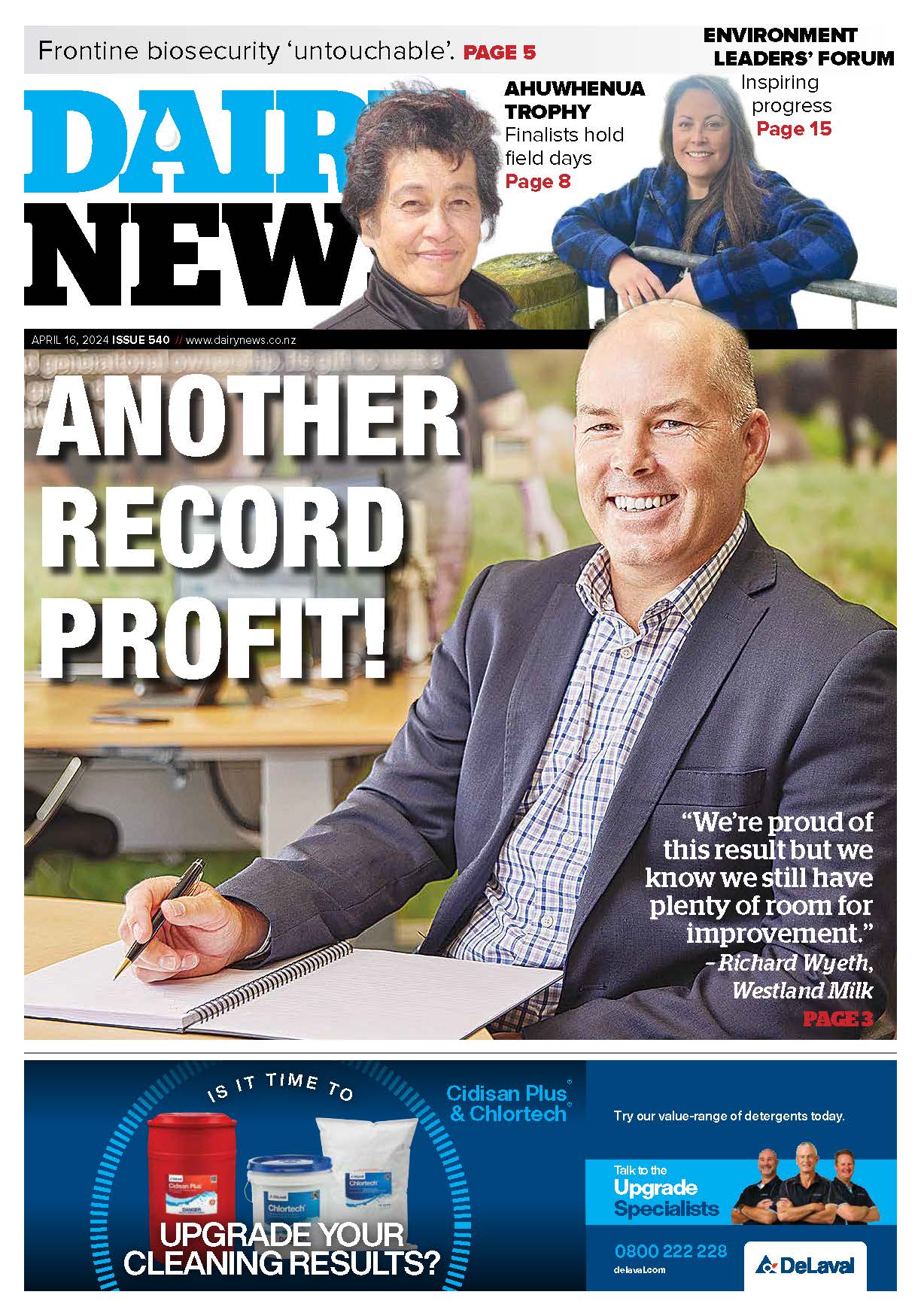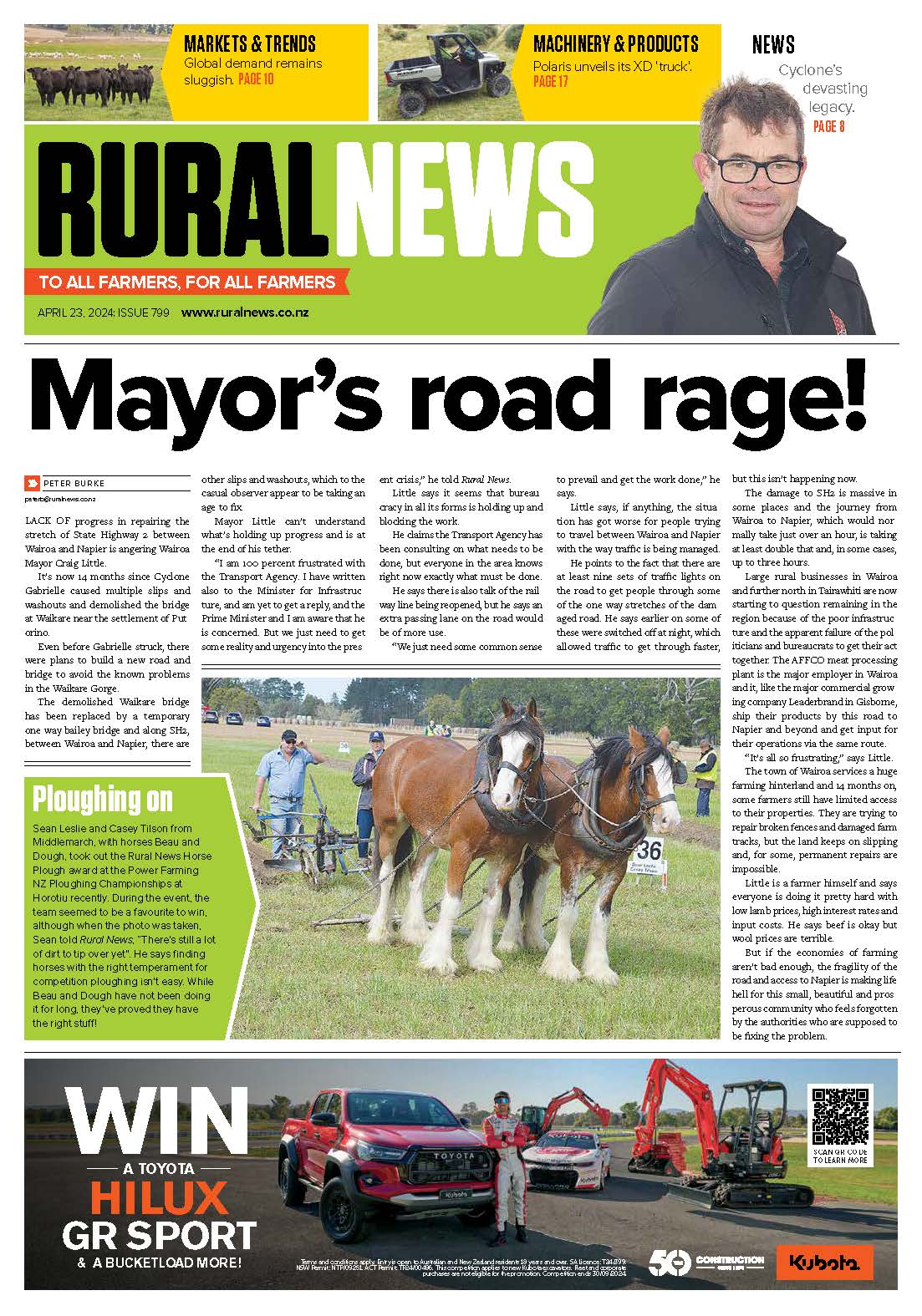AN AUSTRALIAN first – an above-ground effluent storage tank – is fixing problems for a Tasmanian farmer and is an aid to major research into methane gas emissions.
The 2m L tank was commissioned at Jamie Berne’s farm at Meander in June and has already eased long-standing problems caused by waste over the wet winter months. Over the next three years it will also reveal whether short-term retention of effluent in the tank will reduce methane emissions.
While popular in New Zealand, this is the first above ground effluent storage tank in Australia. Such tanks could help on farms with high water tables, particularly in Tasmania and southern Victoria.
It’s a practical solution for Berne’s farm, in a high rainfall area with porous land and needing a new way to store effluent over the wet months of winter and spring, waiting to spread it to best effect when and where it’s needed.
“When it gets wet the land can’t take any more,” Berne says. “When the ground’s already wet you’ve got to try to protect it but we only had a small holding capacity and before this we had to directly apply it to the farm.”
The 2m L tank is designed and made by Tasman Tanks; installation in Tasmania was managed by Laurie Hooper, AgriTech.
Adrian Gardner, senior project coordinator for Tasman Tanks, referred to their “excitement” about building the first dairy effluent tank in Tasmania. “We build a lot of these in New Zealand to store effluent through the winter and we see a lot of scope for this type of setup on farms in Australia where soil types and high water tables mean building a pond is difficult.”
As well as trialling practical issues of new infrastructure the tank is a demonstration site for an Australian Government ‘Action on the Ground’ project. The Tasmanian Institute of Agriculture will look at whether short term retention of effluent in the tank will reduce methane emissions from the effluent system.
PhD candidate Louise Murphy says, “We are hoping that by quickly moving effluent from the storage tank through to the irrigation system we can maximise the amount of nutrient being recycled onto the pasture, improve pasture production and reduce greenhouse gas emissions through volatilisation. It is the ultimate ‘reduce, reuse, recycle’ concept.”
The overall project is being managed by Scott Birchall from AgSystems Design. Birchall has become a regular visitor to Tasmania over the past year, training Tasmanian service providers in designing effluent systems. “Commercial scale research like this using expensive infrastructure is hard to do these days so it is an opportunity to do cutting edge research on effluent management and greenhouse gas emissions,” he said.
Funding for the research is from the Berne family, Dairy Australia, DairyTas, Tasmanian Institute of Agriculture and the Australian Government’s ‘Action on the Ground’ programme.
Berne was prompted to trial the system after hosting a field day where visitors looked at his old system and the discussed the issues he was facing with the wet ground.
“There were a few suggestions about what we could do and after the field day they came to us and asked if we would be willing to be involved,” Berne said.
He was keen to replace the small pond system that was struggling to cope with the wet land and a gradual increase in cow numbers over recent years to about 350 cows on 105ha.
“It was mainly a problem in winter,” he says. “Once we stopped irrigating and the ground was wet we still had to get rid of the effluent somewhere and that was the problem.”
The new system basically disregards the old pond setup. “It connects to where it first runs into a little stone trap but it now comes out the other side and goes into the new system from there. It’s all delivered back to our irrigation system and we can irrigate it onto all the land,” Berne says. “We can decide where it will go and where it’s needed.”
The effluent will go through the irrigation system to a much larger area than before. Any surplus will be stored in the above-ground tank through winter. “As it was, we couldn’t go too far with the hoses and pipes we had and we had trouble with the pipes blocking up.”
So far the new tank is working well, Berne says. “Since it’s been opened up we’ve been able to store all our effluent.”
Where the effluent was previously being deposited is already drying up.
A public field day to see the tank and learn about the research will be held on February next year.





